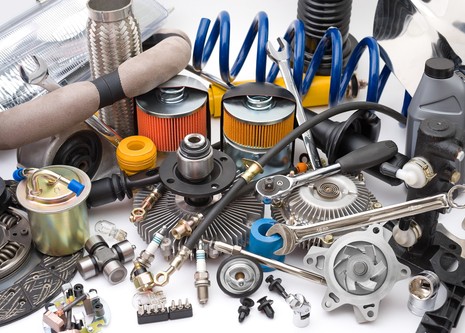Our cars are one of the most vital aspects of our daily lives and something that most of us rely on quite heavily for our day to day functioning.
So when they break down or become faulty, it can be a major inconvenience, and not to mention expensive. As a result, many of us choose to go for used, non-genuine parts to fix our vehicles to save on cost.
But which ones actually offer the best results for your car? And which ones will save you the most money in the long run?
Here, we offer a breakdown of aftermarket and genuine car parts, to help you make the right decision.
What’s the difference?
Genuine car parts, otherwise known as Original Equipment Manufacturer (OEM) parts, are those that have been made in the same factory and by the same manufacturer as your car. They are essentially the parts that your car would have come with when new.
Aftermarket parts, on the other hand, are those that are manufactured by external companies that have bought the rights to make the parts after the sale of the car to the customer by the original manufacturer.
Green Flag offers a handy guide here.
Which ones are better for my car?
In the vast majority of cases, you should always try to buy genuine car parts when replacing your faulty ones, for many reasons.
Reliability:
Genuine car parts are much more reliable than aftermarket parts. Because they have been made by the original manufacturer using the original components, you know they are designed to fit the exact make and model of your car.
Aftermarket parts, on the other hand, could use different components that don’t match your car, causing more issues down the line.
According to VW Motor Parts: “Lots of people automatically go for the cheaper aftermarket parts to cut down costs. More often than not, however, this can lead to more problems due to unreliable and faulty components, resulting in higher costs in the long run.”
Performance:
Closely linked to a part’s reliability, non-genuine parts can also affect the performance of your car.
Due to the wide variation in quality of aftermarket parts, you cannot guarantee that your car will perform well with a non-genuine part. Often parts are made to fit lots of models of car, meaning it may not function well or fit exactly right with your car.
Warranty:
Most genuine parts are covered by warranty or come with some sort of guarantee, giving you peace of mind should anything happen down the line. If you buy aftermarket parts, you are generally left on your own if it develops a fault.
It’s also a little-known fact that if you use aftermarket parts, you could end up voiding your car’s warranty if it’s still new enough to have one, as well as increasing your insurance prices with any non-standard modifications.
This post by Edmunds gives you more details.
Safety:
One of the most important reasons to always choose genuine parts is for the safety of yourself and your passengers.
When cars are first manufactured, they are tested for safety based on their original parts and things are very carefully calibrated. Aftermarket parts can change components, including material, weight, and alignment, which can compromise your safety.
For example, airbags are carefully calibrated with the correct sensors and non-genuine parts can prevent them from being deployed effectively. Similarly, aftermarket bodywork may not have the required crumple zone.
Action Fraud also issued a warning of counterfeit airbags being sold, which would not deploy in the event of a crash and that also contained traces of explosives.
To ensure your safety, genuine parts should be found for vital parts.
